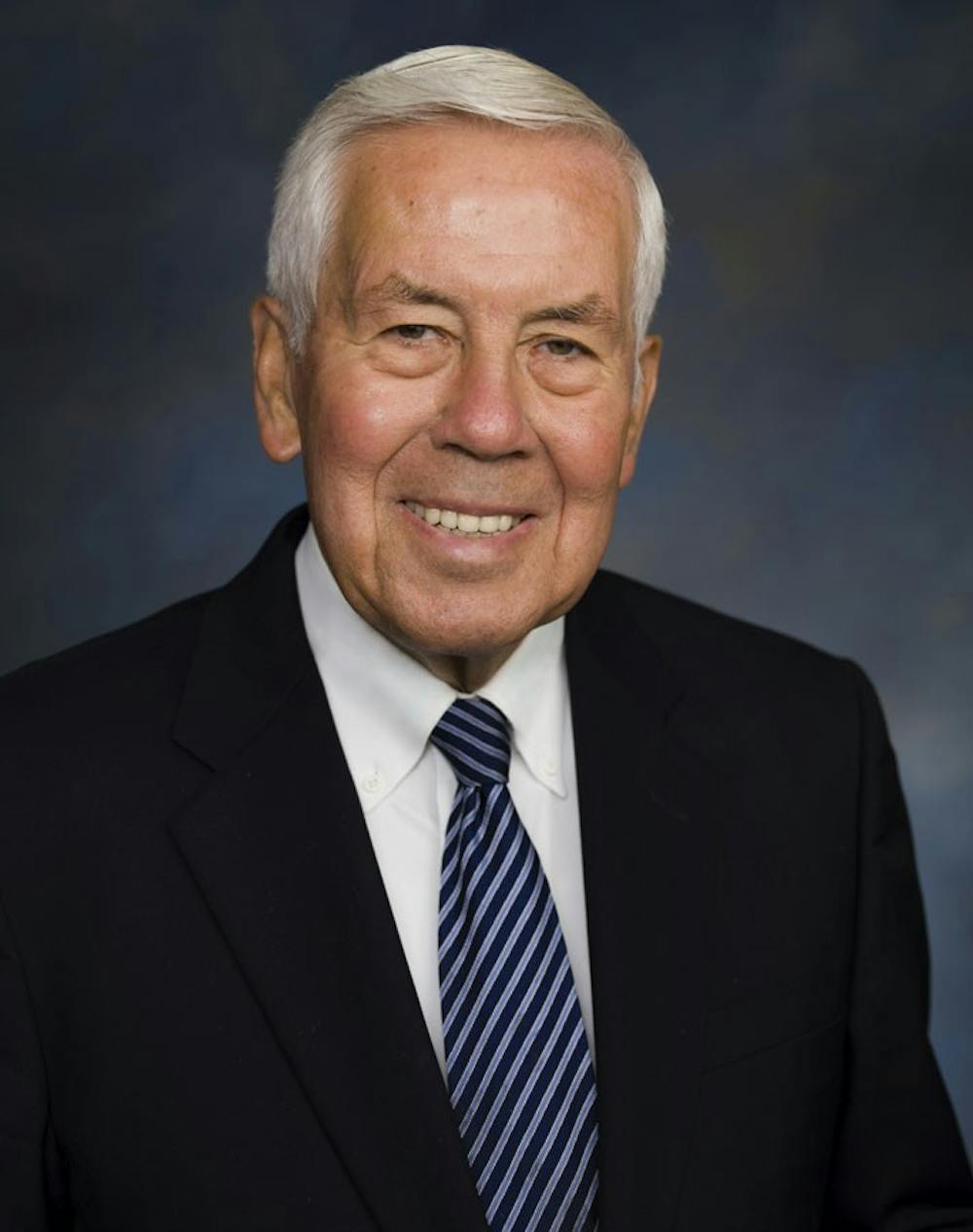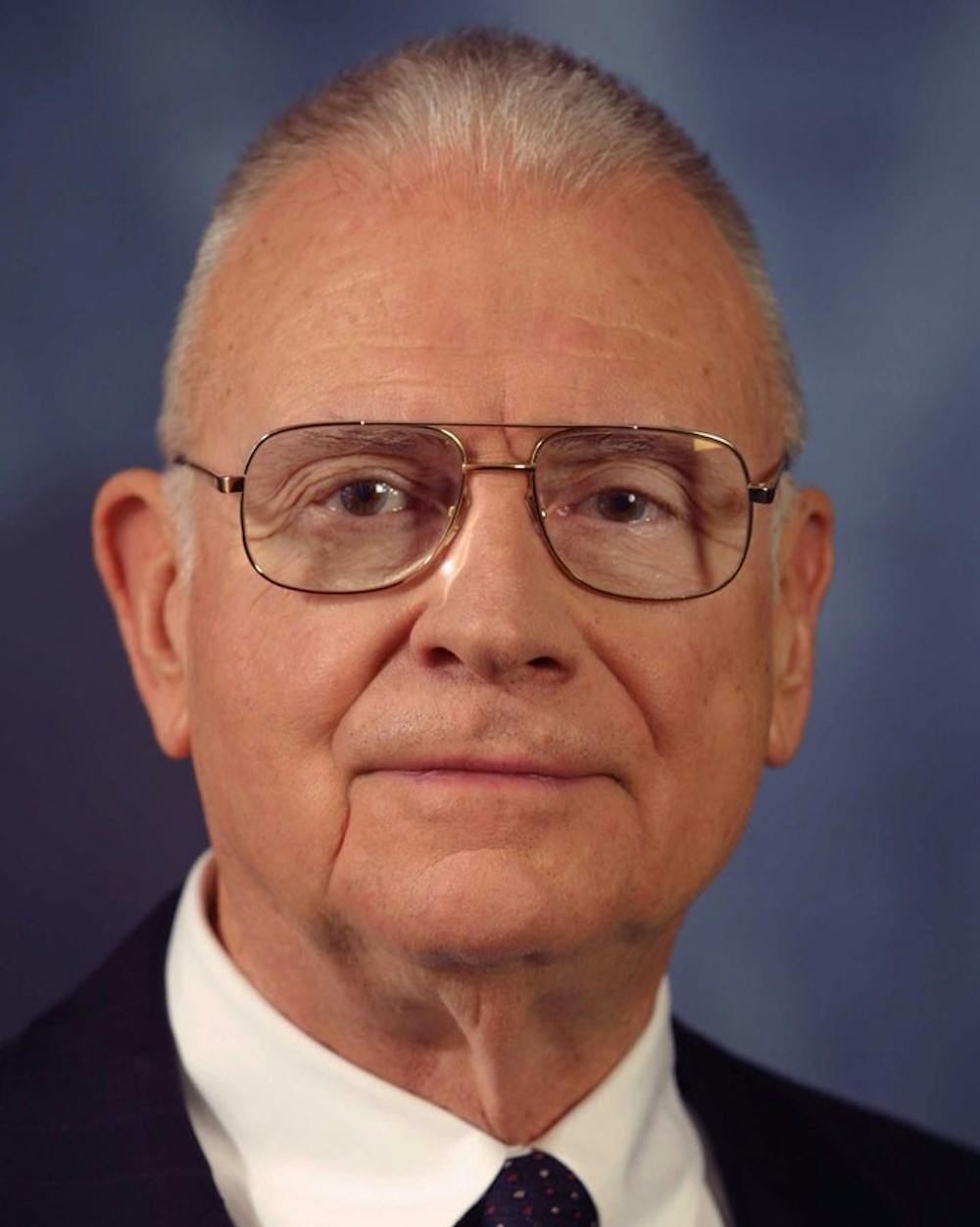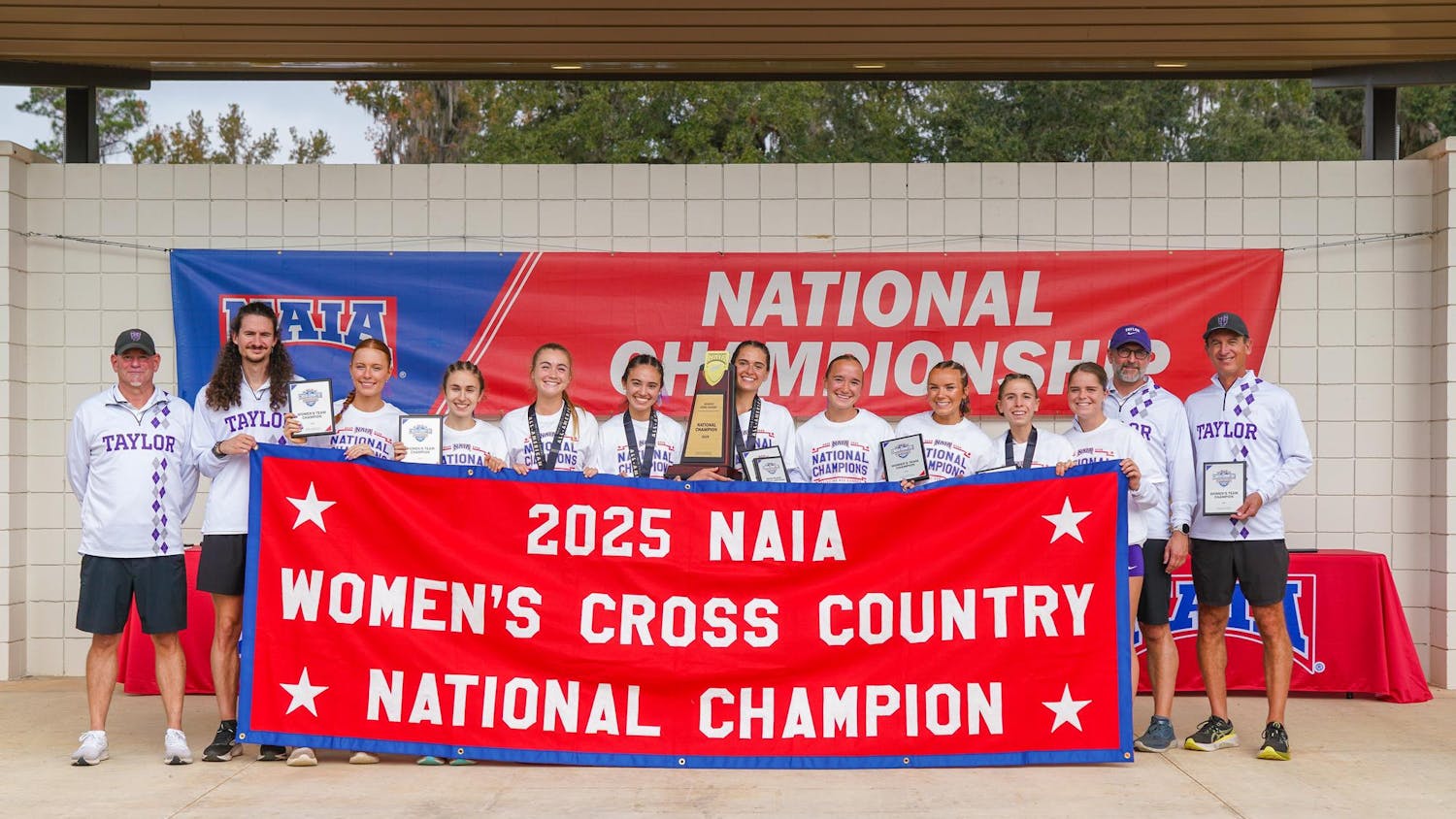By Katherine Yeager | Echo
November 8 is fast approaching, and the hostile political climate leaves many young voters cynical of the current election cycle. Some stand firmly behind a candidate, others refuse to vote and still others remain confused over who to choose or whether or not to cast a ballot.
In this sea of candidates, controversy and questions, Constitution Day comes to campus on October 12. The event will commemorate the ratification of the Constitution with a hosted forum of two guest speakers: former legislators Representative Lee H. Hamilton, D-Ind., and Senator Richard G. Lugar, R-Ind.
Hamilton and Lugar will speak at Taylor's "Dialogue on Civility and Public Service", held in the Rediger Auditoriumat 1 p.m. with a reception to follow in the LaRita Boren Campus Center.
The free, public event will bring in over 270 public and private high school government students as well as some middle school students, according to Michael Hammond, academic dean of the school of humanities, arts and biblical studies and professor of history.
Constitution Day was originally established by Senator Robert Byrd to celebrate the ratification of the Constitution. Today, all universities receiving federal aid are required to host some Constitution-based event each year.
In addition to recognizing the ratification of the Constitution, the celebration is meant to refocus citizenship and avoid partisan issues, according to Matthew Barnes, state minister from the Capitol Commission.
Barnes encourages voters to read the Constitution and understand the amendment process as well as pursue civic involvement and pray for leaders who are charged with abiding by the document.

"If college students start now and are civically active throughout their undergraduate years, tremendous change could happen," Barnes said.
According to Hammond, the lecture receives funding due to Taylor's support of programs promoting Constitutional principles, liberty and freedom. Speakers were chosen based on the recommendations of a small planning committee.
Over the past four years, Taylor has brought in both faculty and outside speakers for Constitution Day. According to Director of Financial Aid Tim Nace, speakers ranging from Judge Paul Mathias of the Indiana Court of Appeals (2013) to former Ambassador of Rome and Ohio RepresentativeTony Hall (2014) spoke on different aspects of the Constitution.
"The importance of responsible civic engagement is needed now as much as ever," Hammond said. "Representative Lee Hamilton and Senator Richard Lugar are two internationally respected public servants who served Hoosiers and the nation for many years."
Collectively, Hamilton and Lugar have served in public office for over 80 years and are each recipients of the Presidential Medal of Freedom. Hammond believes their message is especially relevant now and is excited for the opportunity students and the larger community have to meet and learn from two Hoosier legislators.
For six terms, Lugar served as a representative for the State of Indiana in the United States Senate, holding the longest tenure in Indiana history. During that time, he took initiative in nuclear non-proliferation, free trade, food security and energy independence. Prior to his Senate term, Lugar served two terms as the mayor of Indianapolis in addition to serving on the Indianapolis Board of Commissioners and assisting with the management of his family's Indianapolis food machinery manufacturing business.
Hamilton is a top national expert regarding Congress and representative democracy. Serving as a member of the U.S. House of Representatives on behalf of the State of Indiana from 1965-99, Hamilton went on in 1999 to found the Center of Congress at Indiana University, serving as the director until 2015. From 1999-2010, Hamilton served as president and director of the Woodrow Wilson Center in Washington, D.C.
Tom Jones, chair of the department of history, global and political studies and associate professor of history believes both Lugar and Hamilton hold extensive experience in bi-partisan policy and education both domestically and internationally. "Lugar and Hamilton personify leaders in their own parties who don't villainize the other side," said Jones. "They stick to their guns and support their parties but not at the expense of the country."
While the "Dialogue on Civility and Public Service" is the main subject for this year's Constitution Day celebration, Hammond stated that other opportunities to engage in discussion of current political and public matters are sponsored by various groups on campus.
"Our campus is alive with discussion of the challenging issues facing our world today-as it should be," Hammond said. "We have brilliant faculty and students, and we learn best when we can approach disagreement in a spirit of civil discourse. It makes us better to disagree together, in a spirit of understanding . . . ."
As individuals interact with one another in an imperfect, fallen world, according to Jones, they will never find anyone who defines issues in the same way they do. The temptation for young evangelicals, he believes, is to emphasize social justice narrowly without encompassing the whole of biblical principles. By reducing issues to right or wrong, Jones sees many miss the gradations of right and wrong and forget that voters will not always be content or happy in their decisions.
As students engage in conversations with one another and with faculty members, Jones suggests they immerse themselves in information, summaries and analyses from a variety of sources, at least one of which offers an opposing view.
"Respectful conversation with honest disagreement begins by genuine listening," Jones said. "It's not just listening to the words and while we're listening formulating what our response might be and how we will refute that point; it's actually listening to the idea and how that person is expressing that idea."
Jones advocates for engaging in conversations, rather than debates, in which each side looks for the best in the other person and seeks common ground while staying true to one's beliefs. The back and forth that occurs as a result, Jones believes, helps both parties learn from the other.
If community members are not engaged in the conversation and voting, according to Jones, a representative democracy is impossible. Voters, he states, set the agenda. Those who know and understand an issue but refuse or fail to become engaged in a public conversation create a foothold for bad things to happen.
The Constitution, states Jones, works best with two strong healthy parties who are backed by strong coalitions of supporters who are willing to find reasonable compromise. In the process of achieving an end goal, legislators, Jones concludes, must work together, remembering that moral issues are resolved through a change of heart, not a change of legislation.





